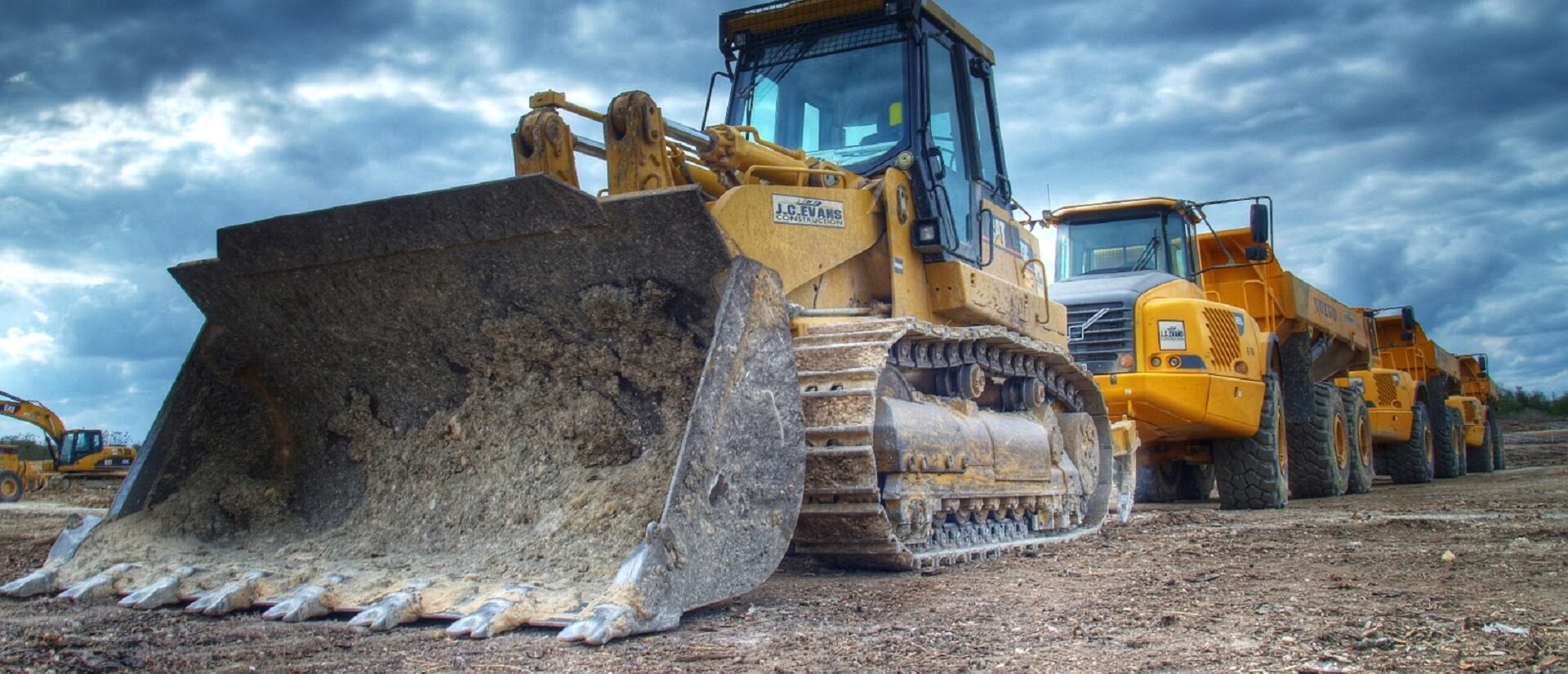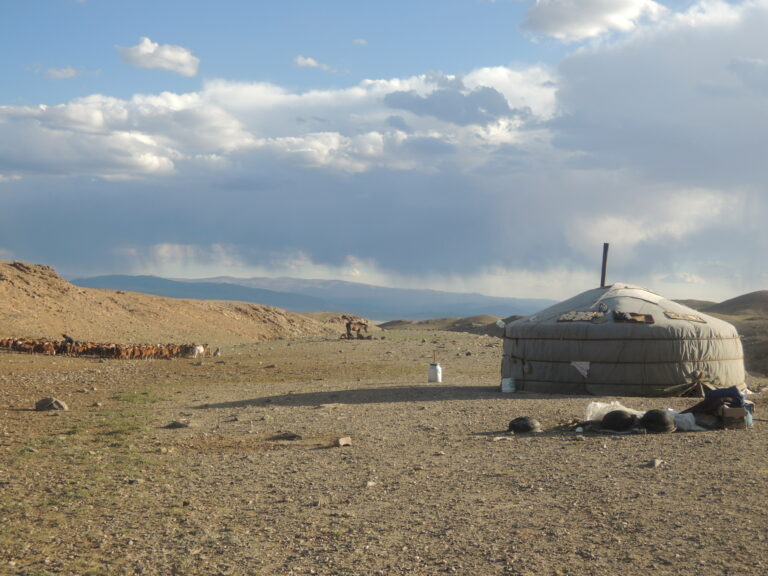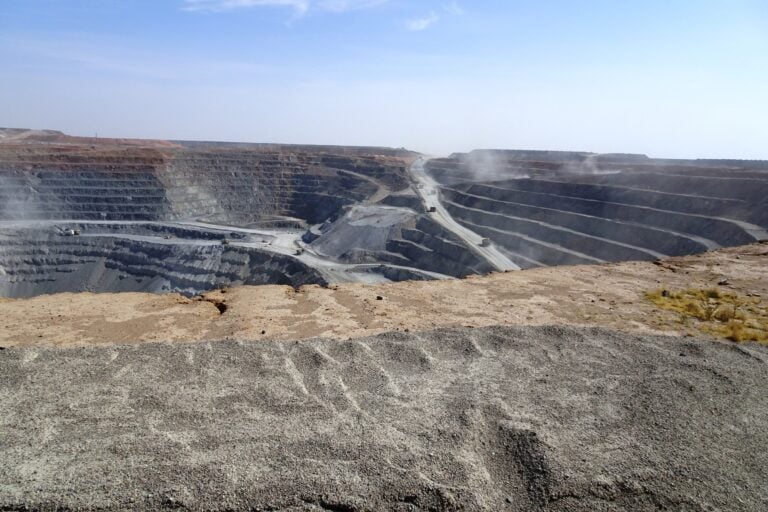
Rio Tinto Shareholders: your dividends are plundered bounty from Mongolia
Today Rio Tinto is holding its Annual General Meeting in London. Due to the global Covid-19 pandemic, the physical gathering in London is replaced by a teleconference. This may be rather convenient for the Anglo-Australian mining giant, thus able to avoid awkward questions from shareholders inside and protests from civil society outside – calling a halt to the human rights abuses and environmental degradation around the world created by the mining giant.
To highlight these abuses and demand that Rio Tinto cleans up its mess, London Mining Network has organised a week of actions and an online protest today(opens in new window) .
The Centre for Research on Multinational Corporations (SOMO) together with the Mongolian NGO OT Watch investigate Rio Tinto’s activities in Mongolia, where the company majority owns and operates the Oyu Tolgoi (OT) gold and copper mine. For a full overview see our long read Undermining Mongolia(opens in new window) .
Controversial mining project
Oyu Tolgoi is a monolithic project that has been particularly controversial and has recently raised concerns with the UN Human Rights Commission(opens in new window) for a number of reasons:
- The Mongolian Government slapped Oyu Tolgoi with a US$ 155 million tax bill early 2018 and arrested three prominent officials involved in signing the two major agreements with Rio Tinto.
- In November 2019, the Mongolian Parliament unanimously approved revisiting the two agreements between the Government of Mongolia and Rio Tinto, arguing that they do not benefit the Mongolian people.
- A Mongolian administrative court upheld the allegation by the non-governmental organisation Darkhan Mongol Nogoon Negdel that the agreement signed for the underground phase of Oyu Tolgoi in Dubai in 2015 did not follow due process.
- The underground mine is not yet productive and will take up to 30 months longer than planned, cost overruns possibly adding up to US$ 1.9 billion more than originally budgeted.
- A Rio Tinto former employee told regulators in the US, UK, Australia and Mongolia that the company knew this many months before they disclosed the information to investors / shareholders.
In spite of this litany of challenges, Rio Tinto still paid out US$ 7.2 billion of dividends to shareholders in 2019 and awarded its CEO a 27 per cent pay rise – meaning he takes home a total of £ 5.79 million. With the pitiful excuse of having paid US$ 4.8 million extra in taxes in January 2018, Rio Tinto initiated arbitration procedures against the Government of Mongolia, arguing that the tax bill is “indirect appropriation”.
SOMO’s research with OT Watch, published in the report Mining Taxes, has shown that Rio Tinto owes the Mongolian Government much more than the US$ 155 million it is asking for. As a result of treaty shopping and tax stabilisation, Rio Tinto managed to avoid approximately US$ 232 million of taxes in Mongolia.
Investment agreements harmful to Mongolian people
The Oyu Tolgoi Investment Agreement includes so-called Investor State Dispute Settlement (ISDS) clauses. An ISDS clause allows investors to sue host governments in the case of investment disputes, and they can do this under United Nations Commission on International Trade Law (UNCITRAL) rules. Originally intended to stop arbitrary abuse by states singling out foreign investments, ISDS has devolved into a mechanism that allows corporations to interfere with a state’s sovereign right to legislate in their people’s public interest. By extension, the arbitration by UNCITRAL is by definition flawed, costly and unlikely to favour Mongolian’s public interest.
The latest report by SOMO and OT Watch, Undermining Mongolia, unearthed leaked US diplomatic cables revealing that Mongolia was pressured into signing an Investment Agreement that privileges corporate interests by offering generous corporate-oriented incentives that do not fill public coffers.
Questions to Rio Tinto
With the help of London Mining Network, Sukhgerel Dugersuren of OT Watch will be able to ask questions during today’s teleconference, along with a few other representatives from affected communities around the world.
OT Watch and SOMO would like to ask Rio Tinto the following questions:
- When will Rio Tinto carry out the environmental and social impacts assessments for its underground mine construction, operations, and the new tailing storage facility section as per the Resolution #92 of the Parliament of Mongolia (November 2019) as well as the recommendations of the Multidisciplinary Team Report (2017 MDT/IEP, p. 26/2289)?
- Without supporting technical information, OT reports state that the water recycle rate in 2019 has gone up to 85% on average and has reached 90% at some point. Yet, Rio Tinto plans to expand the wet tailings storage facility space by an additional section equal to 50% of its initially planned capacity. If Oyu Tolgoi is achieving the planned recycle rate, why would you need 50% more storage space? Will you disclose the water recycle and water resource availability for the lifespan of the mine with information based on scientific calculations and measurements?
- Can Rio Tinto provide transparency about transfer prices paid for minerals produced at Oyu Tolgoi, as well as the mine’s profitability, in order to clarify or alleviate concerns regarding the mine’s future profitability – and the corresponding income the Mongolian Government can expect to receive from the mine?
- Now that the Covid-19 pandemic has shown the importance of public budgets for governments struggling to afford goods and services needed to protect lives, will Rio Tinto abort the UNCITRAL arbitration process and revisit the Oyu Tolgoi Investment Agreement to better meet the needs of the Mongolian people and the protection of the Mongolian environment?
In order for Mongolians(opens in new window) to have access to and control over their own resources, this globally legitimised looting by multinationals like Rio Tinto must stop. We are calling for the notions of ‘good governance’ and ‘rule of law’ instituted by the International Monetary Fund (IMF) and the World Bank Group to be redefined away from corporate interest and profit seeking and towards a healthy planet and for the benefit of all. We need agreements that protect people and the planet – rather than lining the pockets of corporations and their elites.
Partners
-
Oyu Tolgoi Watch
Related content
-

-
Undermining Mongolia Published on:
 Rhodante AhlersPosted in category:Publication
Rhodante AhlersPosted in category:Publication Rhodante Ahlers
Rhodante Ahlers -
 New research shows: Mongolia forced to give up control over its natural resourcesPosted in category:NewsPublished on:
New research shows: Mongolia forced to give up control over its natural resourcesPosted in category:NewsPublished on: -

